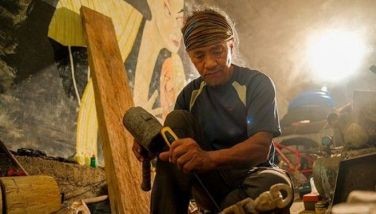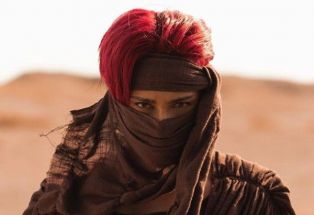A marathon man’s mission
February 24, 2006 | 12:00am
 Ben Silvanetto is the first Philippine marathon runner to join the Olympic Games. The games held in Mexico City in 1968 saw 84 participants running the historic race which traces its beginnings to the Greeks. According to legend, an Athenian soldier named Pheidippides ran from Marathon to Athens. He ran the 42 km. (26 miles) distance from the battlefield by the town of Marathon to Athens to announce the Greek victory over Persia in the Battle of Marathon (490 BC) with the word "We were victorious!" and died on the spot. The International Olympic Committee estimates the distance from the Marathon battlefield to Athens at 34.5 km. (21.4 miles). The story became the basis for the modern marathon athletics event. The race is run over a distance of 42.195 km (26.2 miles).
Ben Silvanetto is the first Philippine marathon runner to join the Olympic Games. The games held in Mexico City in 1968 saw 84 participants running the historic race which traces its beginnings to the Greeks. According to legend, an Athenian soldier named Pheidippides ran from Marathon to Athens. He ran the 42 km. (26 miles) distance from the battlefield by the town of Marathon to Athens to announce the Greek victory over Persia in the Battle of Marathon (490 BC) with the word "We were victorious!" and died on the spot. The International Olympic Committee estimates the distance from the Marathon battlefield to Athens at 34.5 km. (21.4 miles). The story became the basis for the modern marathon athletics event. The race is run over a distance of 42.195 km (26.2 miles).
Mang Ben as he is fondly called, was only 29 when he joined the Olympics in Mexico City. He landed 49th place. Clocking time then for the winner was two hours and 15 minutes for the 42.195 km. and now the record time is two hours and five minutes. A middle distance runner before he shifted to long distance running, Mang Ben also participated in the Asian Games in 1962 in Jakarta, Indonesia, and in the Asian Games held in Bangkok in 1966.
"We held the first Philippine marathon in Roxas City during the Philippine National Track and Field Championships," remembers Mang Ben.
And then in 1968 he was sent to the Olympics in Mexico. A Kenyan, Mamu Wolde emerged as the winner. "Wala pang magandang sistema ng training noon for marathon. Kanya kanyang training at sistema. And during the competition, I bought my marathon shoes (Adidas) in Mexico." Since the shoes were new, Mang Ben ended up with 10 blisters on his feet. "During the first half of the race, I was doing good. But three kilometers before the finish line, I had cramps. I also had blisters."
While training for the Olympics, Mang Ben ran 20 km. a day. He ran from the UP Village to La Mesa Dam to Tanay and back. He also practised in Baguio to accustom himself to high altitude places. "I had to acclimatize myself. You need oxygen in your body."
Trainings for marathoners have come a long way from Mang Ben’s days. "They now put emphasis on aerobics training and less on track and speed."
"Noon, we did weight training, not balanced training. Training should be geared more on endurance," he adds.
A marathoner’s diet consists of 60 to 70 percent carbohydrates, 29 percent protein and the rest divided into fats and vegetables. Mang Ben says Filipino diet is ideal for marathon. But why do African runners fare well in marathons? "It’s in the genes," explains Mang Ben. "Many Kenyans, for example live in high altitude places. Their bodies are more conditioned for marathon and running. Sanay sila sa paggamit ng oxygen in the body."
Is there a technique used when running a marathon? "Pacing is important. Your speed must be constant. You don’t run fast in the first half. You should maintain your speed. You have a pace you maintain for the rest of the race. Pag nagkamali ka, masusunog ka. There are peculiarities in every marathon route. May flat, paakyat, liko-liko." Mang Ben offers a tip. Divide the distance into kilometers and you get your pace.
Mang Ben is secretary general of Philippine Amateur Track and Field Association (PATAFA) and race director of Philippine Marathon for the Pasig River (PMPR). The PMPR is an advocacy project organized by the Clean and Green Foundation in behalf of the Pasig River Rehabilitation Commission, the government agency tasked to rehabilitate the Pasig River. "We would like to raise consciousness for the Pasig River. We would like to announce that Pasig River exists and it needs cleaning," says Mang Ben. Held every last Sunday of February, the Philippine Marathon for the Pasig River was further strengthened when President Gloria Macapagal-Arroyo issued Presidential Proclamation No. 780 declaring Feb. 27 the Philippine Marathon for Pasig River Day and the whole month of February as the Philippine Marathon for the Pasig River Month.
The PMPR started as Pasig River Heritage Marathon. Last year, it got an accreditation from the Association of International Marathons and Road Races, and the International Association of Athletic Federations. Event organizers thought it auspicious to change the name to Philippine Marathon for Pasig River. Thus, since last year, Pasig River Heritage Marathon was called Philippine Marathon for the Pasig River. It has also become an international event following its accreditation. Last year’s marathon saw close to 8,000 athletes participating. Organizers hope to double the participants to the event on its Feb. 26 marathon race.
Mang Ben retired from marathon competition at 34. "When you reach your thirties, your performance declines. Like a battery, it needs recharging," he laughs.
Life of an athlete is not easy. "I always tell athletes not to squander their prizes. They shouuld invest," he says.
Life for Mang Ben has always been sports. "When I was younger, I would coach young athletes." Today as secretary general of PATAFA, he is tasked with the job of promoting athletes and sports like road and cross country races.
Mang Ben’s son is in America. He did not involve his daughter in sports. "Maliit kasi siya. Besides, she is concentrating on her studies." He also has a grandchild and Mang Ben hopes to live to that day when he will see his grandchild graduate from college.
BrandSpace Articles
<
>
- Latest
- Trending
Trending
Latest
Trending
Latest
Recommended































